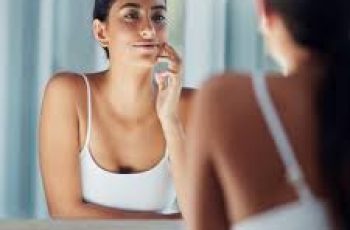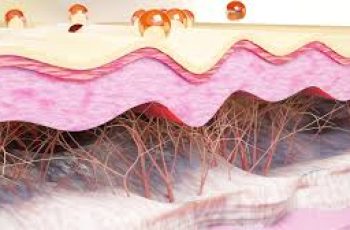
Ask the Dermatologist: Should I Pop Pimples or Avoid Them?
There’s a reason Dr. Pimple Popper has over 16 million followers on TikTok and over 8 million subscribers on YouTube by 2024 — popping pimples can be deeply satisfying, even if you’re watching someone else do it.
But before you walk in front of the mirror and start picking at your own face, remember that Dr. Pimple Popper, also known as Dr. Sandra Lee, is a board-certified dermatologist who knows how to safely pop pimples without spreading bacteria or leaving scars on the skin.
We asked our own dermatologist, Dr. Anthony Nuara, MD, FAAD, what he thinks about this tempting habit and whether it’s safe to pop pimples at home.
The Science Behind Pimples
Every pore on the body’s surface leads to a follicle that contains hair and sebaceous glands. These glands secrete an oily substance called sebum that moisturizes the skin and hair. When pores become clogged, inflammation occurs, which can lead to breakouts. This blockage can be caused by excess oil, abnormal keratin formation, or an increased number of bacteria on the skin. 1
Although pimples are often used interchangeably with acne, they are not the same thing. Acne is an inflammatory skin disease. Pimples or comedones are simply symptoms of this disease.
Pimples may appear as open comedones (blackheads) or closed comedones (whiteheads). While pimples can appear anywhere, they are most common on the face, chest, shoulders, and upper back.
The Pros and Cons of Popping Pimples
If a pimple becomes large and raised with a whitehead on top, you may be tempted to pop it with your fingernails. We generally advise against this. Nails are sharp and full of bacteria. Inflamed skin can also tear easily and form scars.
There are definitely more cons to popping pimples than pros. Here are a few.
Disadvantages of Popping Pimples:
Bacteria Spread
Permanent Scars
Delayed Natural Healing Process
More Inflammation
Regret
Are There Any Benefits to Popping Pimples?
Instant gratification while it works
Expert advice from dermatologists
If you have a pimple that’s about to pop, do your best to hold back. Most pimples will heal on their own without you having to do anything. So, if you can wait, that’s always the wisest choice.
Secondly, you should ask yourself if the pimple is ready to pop. If it’s deep under the skin’s surface and has no head, leave it alone. Trying to squeeze it may push the contents deeper and increase inflammation. You also run the risk of spreading bacteria to the inner layers of the skin, which may make the healing process take longer.
The real key to reducing acne is not treating current pimples, but preventing future ones. For acne-prone skin, the following foundation skincare products are recommended:
Night Renewal Cream: The retinoids in this product (such as Granactive) keep pores clear, thereby preventing pimples from forming altogether. This product also contains peptide growth factors that increase collagen and elastin, which speeds up acne healing.
Niacinamide Lotion 10%: Niacinamide helps prevent acne-related inflammation while balancing sebum production, making it an important component of any acne treatment. It also helps eliminate hyperpigmentation caused by acne scars.
14% Azelaic Acid Cream: Like niacinamide, azelaic acid prevents inflammation that causes blackheads to form while killing bacteria on the skin and reducing the buildup of dead skin cells that clog pores. At the same time, azelaic acid can prevent hormonal acne by breaking the link between elevated testosterone levels and increased sebum production in the skin. 2
Hyaluronic Acid Lotion: As a powerful humectant, hyaluronic acid draws moisture into the skin and seals it. Not only does this deeply hydrate and ensure the skin is hydrated, it also speeds up the skin’s natural healing process, which can help treat current breakouts and acne scars.
All products in the Foundation Skincare range are safe to layer and will not cause irritation. It is best to apply a thin to thick layer for best results.
Safety Tips for Popping Pimples
While we generally recommend not popping pimples, there are some methods of popping pimples that you can use if you can’t resist the temptation. I recommend that my patients use two cotton swabs to gently squeeze and remove the pus. Never squeeze a pimple too hard, and stop if you see blood, as this is a sign that the pimple is too deep to remove.
Alternatives to squeezing pimples
The best option for squeezing a pimple is to wait it out. If you need to do something, you can try:
Use a patch or solution containing salicylic acid.
Apply a warm (not hot) compress to the pimple for a few minutes to loosen the pus.
Try to limit your time in front of the mirror to avoid the temptation to express yourself.
Follow a preventative skincare routine with proven acne-fighting ingredients.
FAQs
Still have questions about squeezing pimples?
Can a dermatologist remove pimples?
A board-certified dermatologist or trained esthetician can safely “pop” pimples without leaving too much scarring. You can also inject medications like cortisone directly into large pimples to calm them.
Do I need to pop a pimple if it’s white?
You should avoid squeezing pimples, but if they’re white, squeezing them is safer than popping a dead pimple. If other methods like bandages or heat don’t work, use the cotton swab technique suggested above.
What if I don’t pop a pimple?
If you leave it alone, pimples usually heal with minimal scarring. This takes about three to seven days. Deeper pimples or cysts may take several weeks to heal.
Does popping pimples cause more pimples?
While popping pimples won’t cause more pimples, it can make existing pimples worse and prolong the healing process.


